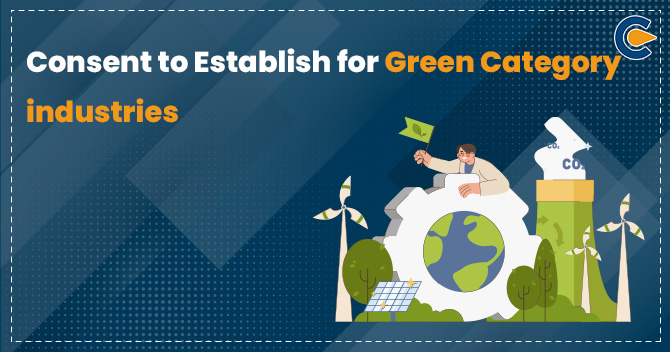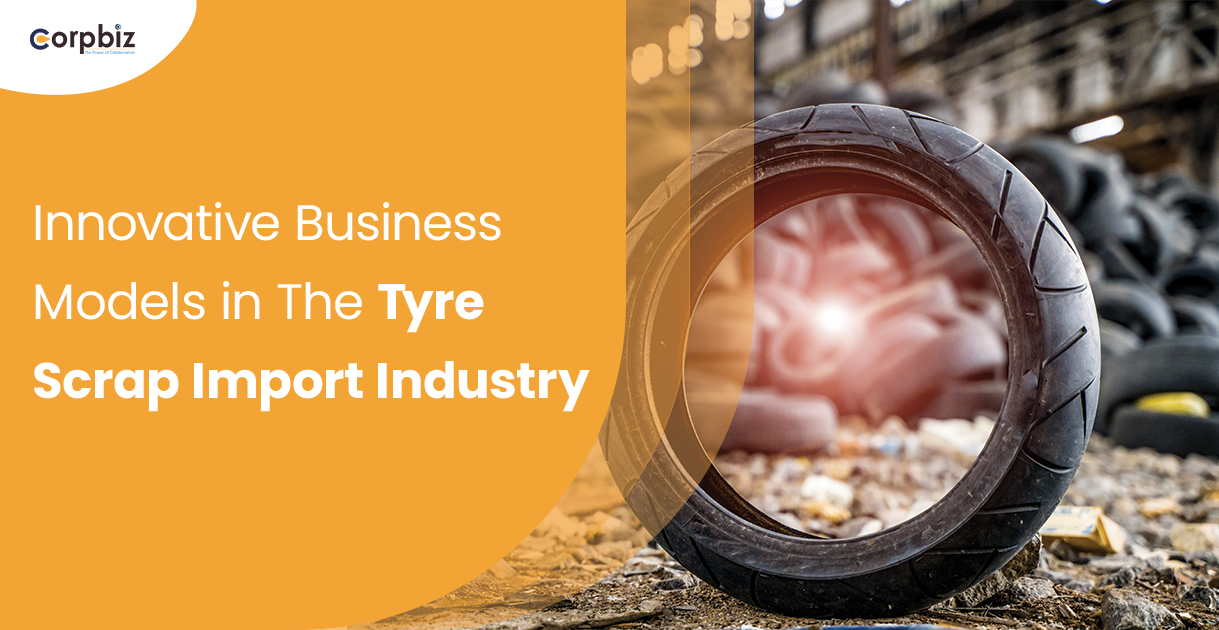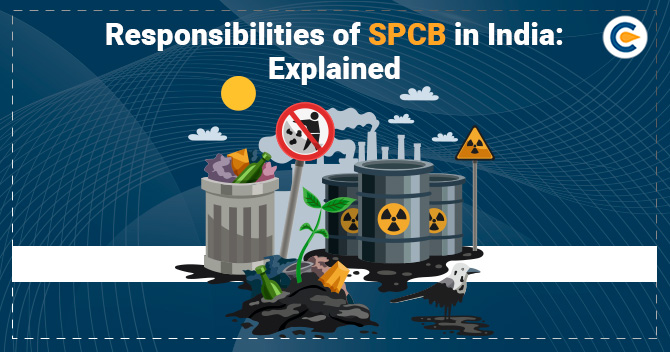Central Pollution Control Board or CPCB was constituted under section 3 of the Water (Prevention and Control of Pollution) Act, 1974[1]. Consent to Establish/Operate/ Renew is granted under sections 25 and 26 of the Water (Prevention and Control of Pollution) Act, 1974 and under section 21 of the Air (Prevention and Control of Pollution) Act, 1981 by the respective SPCBs. Their classification into Red, Orange or Green categories is done based on the Pollution Index (PI), which was developed for the categorisation of Industrial sectors based on their pollution emitting nature. PI is a function of different emissions (air pollutants), effluents (water pollutants), hazardous wastes generated and consumption of resources. CPCB has categorised the following 63 industries into Green Category Industry based on their PI. Any establishment falling in the below-mentioned categories will be classified under ‘Green Category’ and should follow the mentioned steps to acquire a ‘Consent to Establish’.
Industries falling under Green Category.
- Aluminium utensils
- Ayurvedic medicines
- Small Bakery /confectionery
- Polypropylene (PP) film
- Biomass briquettes
- Melamine resins
- Brass and bell metal utensils
- Candy
- Cardboard / corrugated box
- Carpentry & wooden furniture
- Cement products
- Ceramic colour by mixing
- Chilling plant and ice-making
- Coke briquetting
- Small Cotton spinning and weaving
- Dal Mills
- Decoration of ceramic cups
- Digital printing on PVC clothes
- Handling, storage of food grains
- Flour mills
- Electrical Glass, ceramic, earthen potteries
- Glue from starch
- Gold and silver smithy
- Non-polluting Heat treatment
- Insulation /coated papers
- Leather footwear /products
- Blending of Lubricating oil, greases
- Pasted veneers
- Oil mill Ghani
- Packing materials
- Phenyl/toilet cleaner
- Polythene and plastic products
- Poultry, Hatchery and Piggery
- Power looms (without dye and bleaching)
- Puffed rice (muri) (gas or electrical heating system)
- Ready mix cement concrete
- Reprocessing of waste cotton
- Rice mill (Rice hullers only)
- Rolling mill ( gas-fired) and cold rolling mill
- Rubber goods (gas-operated baby boiler)
- Sawmills
- Soap manufacturing
- Spice Blending
- Spice grinding
- Steel furniture
- Grains processing
- Tyres /tube retreating
- Chilling /ice plant
- CO2 recovery
- Distilled water
- Small Hotels
- Optical lenses
- Mineralized water
- Tamarind powder
- Marble stone
- Emery powder
- Fly ash export
- Mineral stack yard
- Oil and gas transportation pipeline
- Seasoning of wood
- Synthetic detergent
- Tea processing
- Pulverization of bamboo
Obtaining a Consent to Establish
CPCB has tried to streamline the Consent Mechanism (Consent to Establish and Consent to Operate) in 2017 by directing the SPCBs/PCCs to adhere to the following guidelines.
- Although CPCB is responsible for coordination between the State Pollution Control Boards (SPCBs) and Pollution Control Committees (PCCs), the Respective SPCBs and PCCs are responsible for prescribing the consent application form, collecting consent fees, site Inspections and Issuance of Consent to Establish (NOC)
- An establishment will require the previous consent of State Boards to establish or Operate any Industrial Plant in an air pollution-controlled Area. A green category industry will not require any Environmental Clearance.
- Following the GoI’s initiative of Ease of Doing Business, many states have worked upon simplifying the Consent Application process, like removing irrelevant sections related to details of hazardous chemicals and wastes from the application form. The application usually contains a General Section, a Waste Water Aspect Section, an Air Emission Aspect section and a Hazardous Waste Aspect section.
- The application may vary as per different standards, which the concerned SPCB/PCC fixes.
- While every state has its specific requirement, the following set of documents is a mandatory requirement to obtain a Consent to Establish under Green Category.
Documents Required for Consent to Establish by a Green Category Industry
- Duly filled Application Form
- Undertaking in the prescribed format
- Site Plan or layout plan along with a roadmap
- Detailed Project Report with details of emission, effluent, solid waste management plan, raw materials, finished products, manufacturing process including a list of machinery, the capital cost of the unit (land, building, and plant machinery), water-balance, source of water, and its required quantity
- Proof of Possession/rent Agreement for the Plot (i.e. rent receipt, land deed, porcha (record of rights), lease document (as applicable)
- Industry Registration Documents
- Any other Document specified in the Application Form
Application Process for obtaining Consent to Establish NOC
- Application for Consent to Establish is generally submitted at the Regional Office if the application is made offline along with all required documents.
- In the case of online applications, the form can be submitted at the notified portal along with the requisite fee.
- The application is forwarded to the inspecting authority. In the case of a Green Category industry, the R.O scrutinises the application and is followed by a site visit by engineers.
- After preparation of an Inspection Report, the application is forwarded to the approving authority, and a final decision is usually taken within 30 days and up to a maximum of 120 days.
- In some cases. In most cases, a Provisional CTE is issued.
Fee for obtaining Consent to Establish NOC
- The Consent fee that is required to be paid by the establishment depends on factors such as Capital Investment in land
- Plant and machinery (without depreciation), excluding any capital investment on pollution control equipment.
- Fee can be paid for a minimum period of one year and upwards.
Conclusion
The introduction of an online mechanism has relatively simplified the procedure for obtaining a Consent to Establish NOC from the government. But this can still be a challenging task for new entrepreneurs and even existing businesses. A new application for consent and renewals or fixing up of objections raised by the authority after the inspection can be some of the challenges faced by the entity. Moreover, there are instances when a new establishment may find itself not falling under any of the specified industries and may need clarification from the authorities, like in the case of ‘gaushalas’ that were, after deliberation by the Central Pollution Control Board , placed in the Green category of Industries. So with new forms of businesses evolving with time, proper aid and guidance will become quintessential for their growth.
Read our Article:CPCB Producer Responsibility Organization











